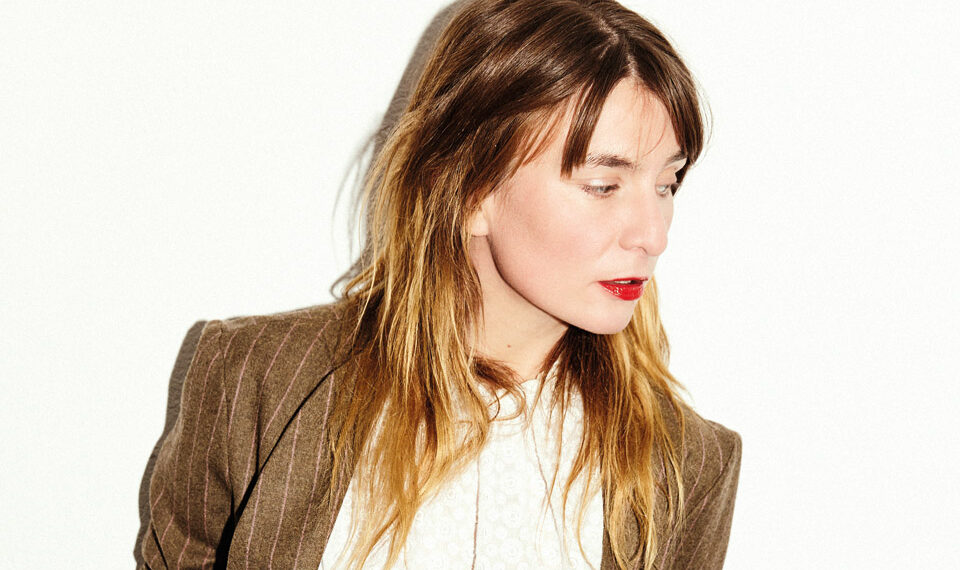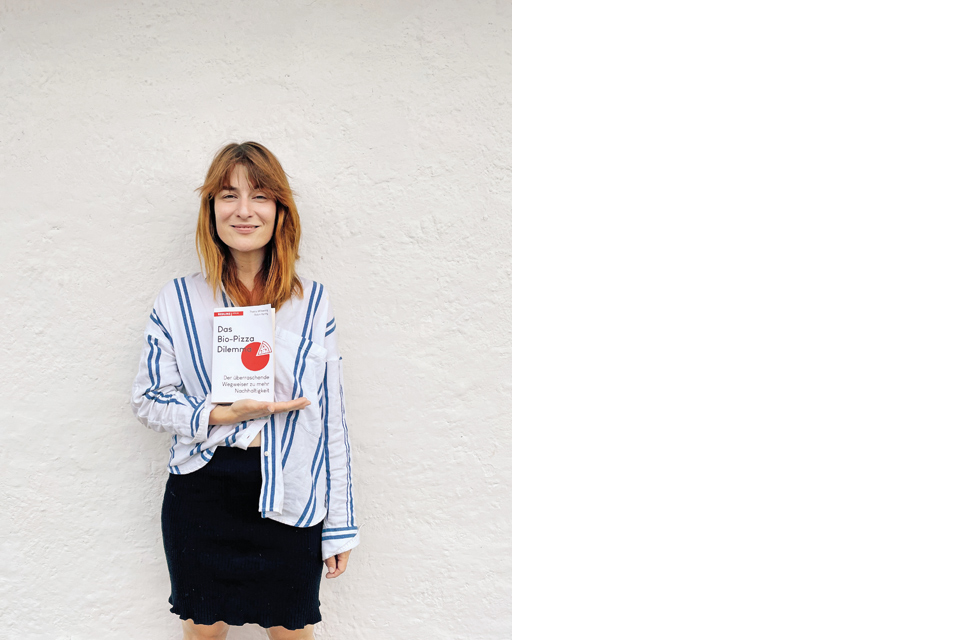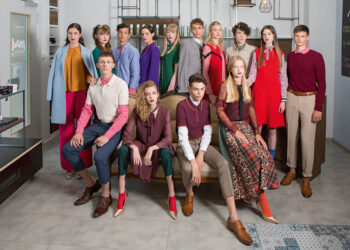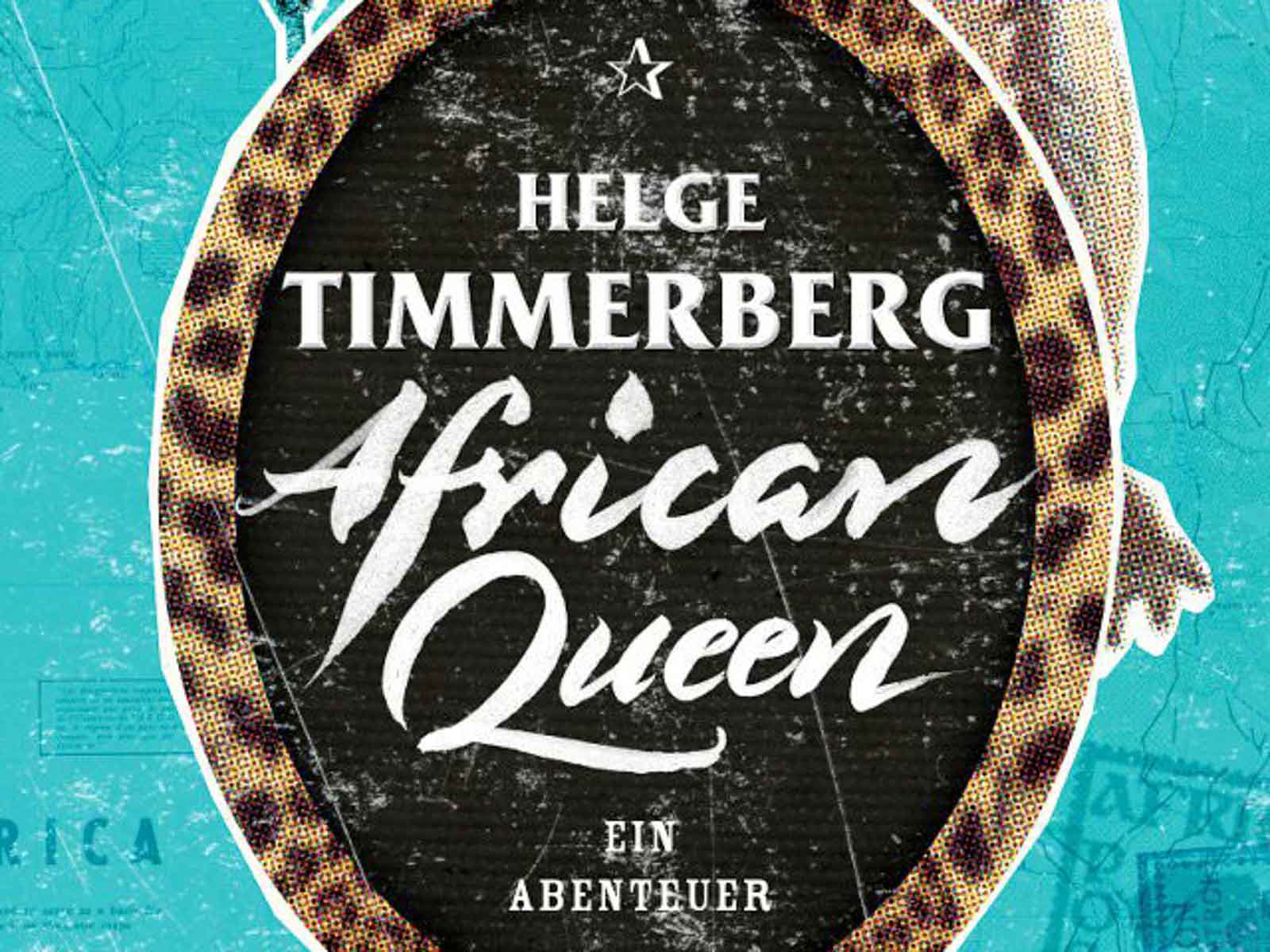Sustainability here, sustainability there. And we are right in the middle of it. Our heads have long been spinning from all the greenwashing, so much so that we are inclined to throw everything away. Thekla Wilkening throws us a lifeline with her new book “The Organic Pizza Dilemma” and shows that we don’t have to save the world alone.
FACES: With Kleiderei and Stay Awhile, you have already tried twice to launch a fashion rental service. Do you still believe in the concept and, looking back, what would you do differently?
Thekla Wilkening: Yes. I still believe that in the future we won’t own all the clothes we wear every day. I think it will be a hybrid closet of favorite pieces, borrowed pieces and secondhand.
F: You failed twice with your idea of a rental service. What was the reason?
TW: From today’s perspective, I would say that we were very right with our very first business model in 2012, namely the local store in Hamburg’s Hochstrasse in St. Pauli. And today, Lena Schröder is continuing the Kleiderei concept with a store in Cologne and one in Freiburg, which is managed by Maria Schorn. I think that sustainable concepts can work very well offline because the community comes together in these places. The energy this creates is stronger than the online world we were in with Kleiderei.com and Stay Awhile.
“If a pair of jeans says ‘better’ denim – is that good enough?”
F: Is it fair to say that Corona has broken the back of your Stay Awhile service?
TW: Stay Awhile was affiliated with a larger company that quickly had to put employees on short-time working. I advised the company from the outside, and my contract was quickly terminated – to save costs. When a company, and especially a young one, has to cut corners – it’s quickly over.
F: What is the most important lesson you take away from these two experiences?
TW: That it’s right to try everything! Even if I think afterwards that we were the closest at the beginning. But who knows – maybe that wasn’t true back then either? After all, that was almost ten years ago.
F: What is your motivation to keep trying?
TW: Good question. I was told very early on that I had an extremely high level of basic trust in the world. I firmly believe that we can shape much more than we think – and that in the end it is our own decision. Of course, this only applies to people who have a certain amount of financial security and don’t have to worry about money for their food.
F: What is the biggest mess in the fashion industry?
TW: That brings us to the topic: for me personally, it is the social injustice that is so massively reinforced by this industry. People who receive too little money for their work become dependent on it and can hardly act independently. This is exploitation and slavery.
F: What circumstance in the production of clothing shocks you the most?
TW: How hundreds of thousands of people can be exploited – so that a few people can become very, very rich. And that this is permitted globally. In some countries, the statutory minimum wage is so low that industry has to come into the country at all. The government is not protecting its own citizens. And large corporations, here in the global North, profit massively from this.
“The desire for perfection is the killer.”
F: What will it take for the big players in the industry to finally produce sustainably?
TW: Laws. It should be illegal to trade globally in products that have not been produced fairly or with sustainable chemical management. And globally, for example with import and export controls.
F: Is there a need for Fashion Week, and to what extent does it perhaps even stand in the way of sustainable fashion consumption?
TW: I think that places where people come together are always excellent for change. And it is precisely these events that can set trends and change things. Of course, this requires courage on the part of the organizers. Even before the pandemic, Copenhagen Fashion Week announced that it was pursuing a three-year plan to ensure that brands take sustainable developments seriously and holistically. These are the examples we need.
F: How many pieces of clothing do you own, and which is the piece with the most emotional value to you?
TW: I would estimate around 150 to 200 pieces. I try to load all the pieces with memories, memorize what I experienced with them and thus have real partners-in-crime in my closet. Boots that feel straight out of a festival and dancing, a Barbour jacket that instantly forms a shield around me when I want nothing from the world, or a floral wrap dress that shouts “yes, here I am”.
F: When H&M launches a Conscious line or online stores label individual labels as supposedly sustainable: Does that make you feel confident, or are you critical of it, and if so, in what way?
TW: It depends on the communication. But I generally appreciate it more when big brands keep their sustainability efforts to themselves until they have made a real change. Because much else is greenwashing and confuses customers. If a pair of jeans says “better” denim – is that good enough?
F: Second-hand fashion in the high-end segment is currently in greater demand than ever before. However, this is driving up the prices of second-hand fashion and boosting consumption here too. Is that good or bad?
TW: I think it’s good. There really is nothing better than continuing to use products that have already been produced. Whether furniture, fashion or cars. It conserves resources, attaches a value to things that goes beyond the “desire to buy” and encourages manufacturers to produce products that last.
F: How do you define sustainability for yourself? And what is the problem with the concept of sustainability?
TW: I agree with the classic explanation that sustainability means that we can repeat something an infinite number of times – without exceeding the planetary boundaries or straining the natural regenerative capacity of our earth. Living in harmony with our natural resources affects the environment and living beings, including all animals and humans. And this is where I see the problem: the concept of sustainability is often applied to ecological or recycled materials, but excludes social justice. There is simply no universally valid definition that protects against this kind of greenwashing.
Q: Why is our society failing?
TW: A false sense of entitlement. We humans are the only living beings today who can move completely freely. We have created a world that gives us all the freedom we need. And yet we run after success, consumption and money and keep other people down in return, who then no longer have a choice. I wish we humans would see our lives more as the “freest phase” of our existence on earth. The time when we can love, dance and kiss. Family, community, kindness and mutual support should be our values before a large part of the mass of our body passes into the earth with death. I know that sounds very hippie, but I think it wouldn’t do us any harm.
F: What are the limits of sustainability?
TW: Fairness. We can’t be free in an unfair world.
F: You would now like to work as a sustainability consultant. Where are you heading and what new problems are you facing?
TW: I’m quite relaxed about that. I think with as much knowledge as I’ve accumulated over the last few years, it’s only logical to start passing it on at some point. We’ll see whether this is classic management consulting or other books – or a hybrid mix of both!
F: Textile, glass or plastic, in the end it is always about a cycle. How do we improve this, and what are your ideas and guiding principles?
TW: First and foremost, it starts with a simple question: What should my product be able to do? How long should it last? What should it give the world? We then derive from this which circuits are the right ones. For example, products that have been in people’s homes for a long time can be collected, recycled or resold. Complex procedures are worthwhile. Plastic that wraps chocolate bars and is constantly thrown away by people, even in nature, is another case: it would make sense for it to be biodegradable.
F: So how do you help companies to produce sustainably?
TW: First and foremost, I want to bring clarity to this issue of sustainability. Where does the company want to go, what are its goals and visions? And who is the target group? The system can then be adjusted accordingly. Local textile production in Germany, for example, only makes sense if the potential customer is willing to pay for it – and wants to keep the garment for a long time.
F: There are numerous sustainability seals. How do consumers find their way through this jungle and how important are these labels for sustainable consumption?
TW: It’s actually almost impossible to find your way around. In principle, there is the Fairtrade seal, which guarantees fair working conditions. That’s great and should always be preferred, for example with coffee. In the fashion sector, there is also the Fair Wear label, which works in a similar way. And GOTS is about the textile standard. The website Siegelklarheit.de provides an overview. I always advise friends: if it’s not clear whether the product is fair or organic – send a DM, an email or a tweet to the company. In this way, we as citizens are showing that the issue is important to us.
F: With “The Organic Pizza Dilemma”, you have written a book that absolves consumers of their responsibility to save the world. If not the consumer, who bears the responsibility?
TW: Politicians must create framework conditions that make it impossible for companies to continue producing in the same way as before. Corporations should actually strive for this themselves – but unfortunately, profit maximization is the ultimate goal of almost all companies. We citizens can participate politically and become active.
F: Is sustainability really “just” a matter of attitude?
TW: I think it’s just the “only”. Sustainability is a matter of attitude. That sounds easier than it is – and we are not really taught how to do it.
F: Can you understand that people today are also a bit tired of sustainability due to external pressure?
TW: Yes! More than that. Hence the book. We have gone to great lengths to make the connections tangible and to tell the story in an entertaining way. There are personal stories, successful and not so successful, with which we would like to inspire and motivate.
F: Is it okay to separate your trash, buy organic vegetables and recycle clothes, but then take a plane halfway around the world on vacation?
TW: Yes. Flying is of course a particularly sensitive issue because long-haul flights really do cause very high CO2 emissions. Compensation payments are a good way of doing this. But in any case, the desire for perfection is the killer. I always say: every sustainable decision is better. Look where you succeed. The rest will come naturally.
F: What do policymakers need to do to make the world more sustainable?
TW: Implement supply chain laws, link free trade agreements to social fairness, make companies responsible for their waste, keyword “extended product responsibility”, create tax breaks for start-ups that are already trying to get it right, and introduce sanctions if targets are not met.
F: And what can each person do themselves to make the world a little better?
TW: Ask, listen, feel inside yourself. I think we all know very well what environmentally friendly decisions are and what are not. We can trust this intuition more again!
F: What do we need to get out of the habit of as soon as possible?
TW: Believing that consumption makes you happy.
F: What gives you hope?
TW: The decision to always have hope.
F: How do you envision our world in twenty years?
TW: I would like to see a world in which we know that everything in the supermarket has been produced fairly and ecologically. I would like to see a world in which everyone receives a wage that allows them to shape their lives. I would like to see a world in which we own less, share, swap, borrow and value things more. And appreciate nature. That is of course utopian for the next twenty years – but it is my vision on the horizon.
F: Do we still have a chance to turn the tide?
TW: Always!
The organic pizza dilemma
We’re not saving the world with organic pizza – at least not just with it. Thekla Wilkening and Robin Haring take the burden off consumers’ shoulders to solve all of today’s problems, from the extinction of the rainforest to the extinction of polar bears, by buying sustainable and fair products. “The organic pizza dilemma” puts the onus on politicians and the pressure on the average person to always do everything right. Wilkening and Haring explain sustainable action, create courage and inspiration and thus give us a light at the end of the tunnel that we urgently need in order not to get stuck halfway through because of excessive demands, confusion and frustration. Thekla Wilkening and Robin Haring, “Das Bio-Pizza Dilemma”, Redline Verlag, approx. 18.-









